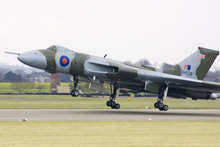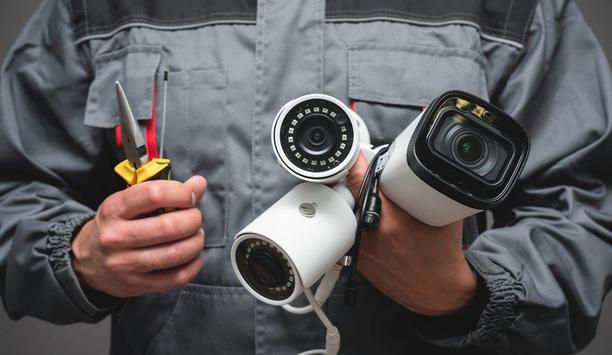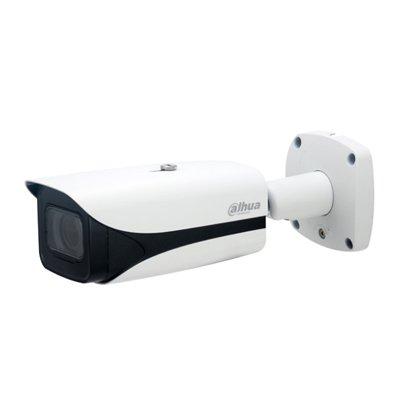 CCTV specialist AD Group is sponsoring the ambitious "Vulcan to the Sky"' project designed to return an original Vulcan V-bomber to flight and allow the majestic delta-wing design to once again wow the crowds at public air displays. As part of its support for the project, AD Group plans to supply a state-of-the-art FlightVu digital video recorder - and associated CCTV cameras - from its subsidiary AD Aerospace to provide valuable in-flight footage of this historic aircraft.
CCTV specialist AD Group is sponsoring the ambitious "Vulcan to the Sky"' project designed to return an original Vulcan V-bomber to flight and allow the majestic delta-wing design to once again wow the crowds at public air displays. As part of its support for the project, AD Group plans to supply a state-of-the-art FlightVu digital video recorder - and associated CCTV cameras - from its subsidiary AD Aerospace to provide valuable in-flight footage of this historic aircraft.
To reach a position where Vulcan XH558, which left RAF service in 1993, is only weeks away from obtaining a CAA (Civil Aviation Authority) permit-to-fly is the end result of an eleven-year restoration project, an outcome which has only been made possible by the hard work of a network of volunteers and funding from business and private donations.
Mike Newton, AD Group's CEO, who attended a recent test flight, was impressed by what he saw: "The Vulcan is undoubtedly one of the pinnacles of British aircraft design and engineering, ranking alongside Concorde and the Harrier, in terms of milestones in our aviation history. Thanks to the efforts of the 'Vulcan to the Sky' team the restored Vulcan rekindles memories for those of us who lived through the Cold War era and for the younger generation should bring an important part of our history to life. Standing watching as the large-delta V-bomber took-off one more time, with the roar of its four engines pushing 70 tonnes of aircraft into the clouds, was simply breathtaking!
"As a business we are delighted to have been able to support this fantastic project, the professionalism and dedication of everyone involved is to be commended. AD Group already has a keen interest in aviation through our AD Aviation and AD Aerospace subsidiaries so our involvement in the 'Vulcan to the Sky' initiative makes perfect sense. To have now been given the green light to fit our FlightVu system in the near future, more usually deployed in passenger jets, in such a unique aircraft is a real privilege."
The Vulcan first flew in 1952 and alongside Valiant and Victor bombers became the mainstay of Britain's nuclear deterrent force during the Cold War. Later when Polaris submarines took over this role the venerable Vulcan was reconfigured as a conventional bomber and was able to show its worth once again when it led an audacious airstrike on Port Stanley runway during the Falklands war, with an aircraft flying all the way from Ascension to the Falkland islands - refueled in-flight - a record distance of 8,000 miles.
For more information and to make a donation to the "Vulcan to the Sky" project, which is based at Bruntingthorpe Airfield in Leicestershire, please click here.
















